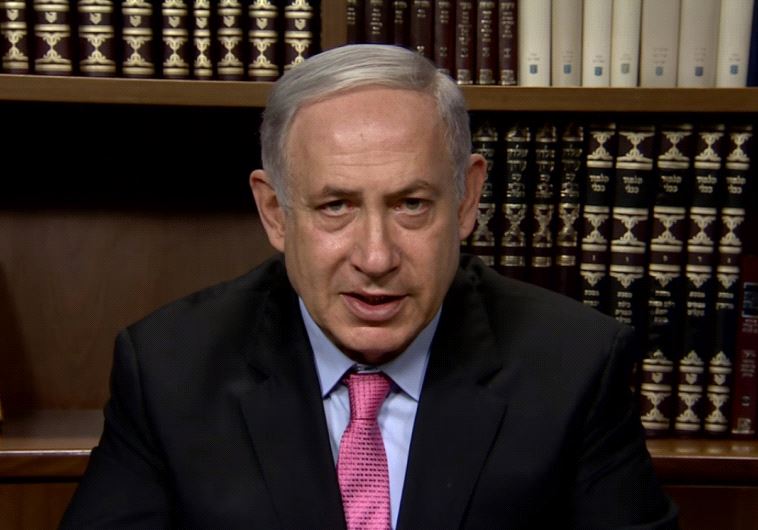Opinion: Is Netanyahu muzzling the media?
Prime Minister Benjamin Netanyahu is stifling free speech by weakening Israel’s commercial and public broadcasters.
 PM Netanyahu: Dear Arab citizens of Israel--take part in our society in droves(photo credit: screenshot)
PM Netanyahu: Dear Arab citizens of Israel--take part in our society in droves(photo credit: screenshot)